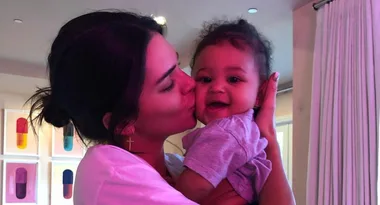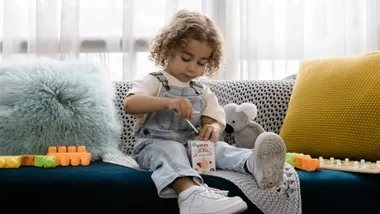It’s the game that’s taken the world by storm and its keeping kids up way past their bedtime but should you be concerned about Fortnite?
If you listen to the scaremongers, it’s violent, addictive and makes your kid really angry when they’re told to stop playing.
But like Pokemon Go, Minecraft and fidget spinners, Fortnite is a fad so what’s the best thing you can do for your kid?
Play it with them.

Both Marcus Carter, lecturer in digital cultures at the University of Sydney, and Jocelyn Brewer, of Digital Nutrition, believe understanding what your kids are playing is crucial.
Jocelyn says parents need to stop “freaking out” about their kids’ obsession with the game and pick up a console and have a go. Sure, you may be busy, but as she points out, you used to think everything they did as a toddler was adorable and hilarious.
As she says: ‘We must be proactive about understanding what we allow young people to digitally feast upon.’
And rather than adding it to your “to do” list, Jocelyn says you need to get into the headspace of being playful when you settle down to play it with your kids.
Marcus agrees and points out that because the game is on mobile devices parents don’t need a gaming computer or consoles for every member of the family.
‘All of the things we’re learning about children and digital tech … is that when parents play the games with the kids, that’s better for everyone overall.’

Plus there’s plenty of positives about Fortnite.
Kids don’t need a credit card to play or win and you can switch off the voice chat function if you’re worried about them talking with strangers. Obviously they’ll want it on when they’re playing with friends.
What’s more kids learn skills including strategic thinking, forward planning and creative approaches to combat. They also work hard to save their team mates.
Best of all, games only last up to 20 minutes and so it’s easy to set time limits.
There’s only one downside – such is the nature of fads that about the time you become really good at the game your kids will have moved on to something else!
Related:How to discuss your child’s school report










